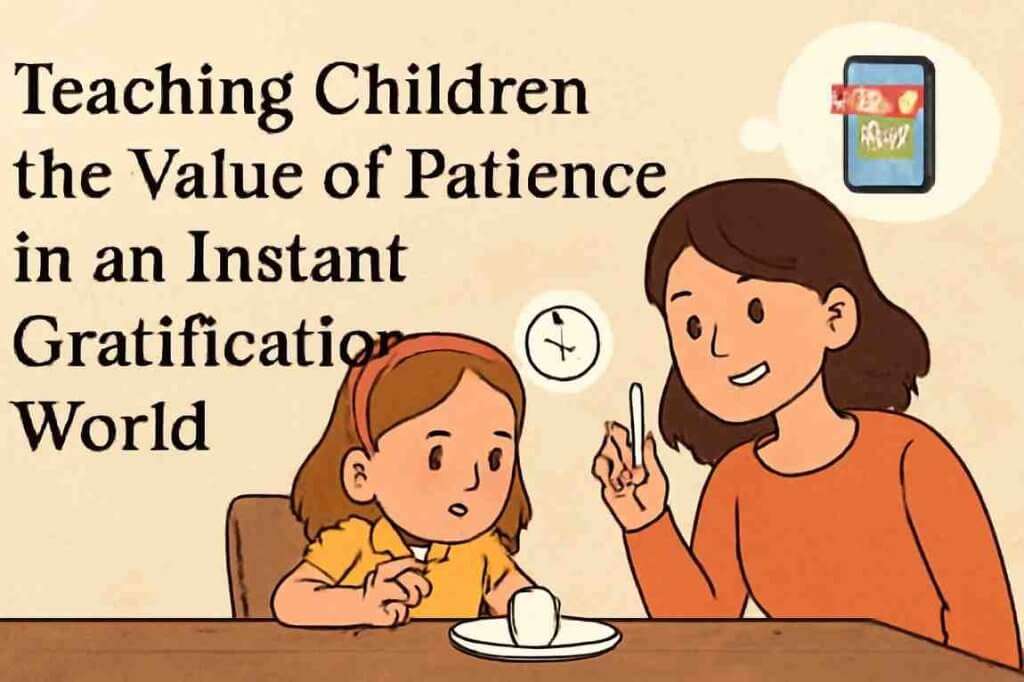Streaming services deliver entertainment at the touch of a button, online shopping brings purchases to our doorstep within hours, and social media provides instant feedback on our thoughts and experiences. Children are growing up surrounded by immediate results and rapid responses, making the development of patience one of the most crucial yet challenging aspects of child development for parents and foster carers alike.
The Modern Challenge
The environment our children inhabit moves at breakneck speed. Social media provides instant validation through likes and comments, whilst video games offer immediate rewards and achievements. This constant stimulation can make waiting feel uncomfortable or even unbearable for young minds. Fostered children may face additional challenges, having experienced uncertainty and instability that can make delayed gratification particularly difficult to embrace.
Foster carers often work with children who have learned to seek immediate comfort or control as coping mechanisms. Understanding this context is essential when approaching patience-building activities with sensitivity and care.
The Importance of Patience in Child Development
Patience is far more than simply waiting quietly. It’s a fundamental life skill that supports emotional regulation, academic success, and healthy relationships. Research consistently shows that children who develop patience early demonstrate better problem-solving abilities, improved social interactions, and greater resilience when facing challenges.
For children you foster with ISP Fostering, who have experienced trauma or disruption, learning patience can be particularly transformative. It provides them with tools to manage difficult emotions and builds confidence in their ability to cope with uncertainty.
Practical Strategies for Building Patience
Start with age-appropriate waiting periods. For younger children, begin with activities that require just a few minutes of patience, such as waiting for biscuits to bake or watching a timer count down during a game. Gradually extend these periods as their tolerance develops.
Create meaningful waiting experiences by involving children in the process. When cooking together, explain why bread needs time to rise or why we must wait for water to boil. This helps children understand that waiting often leads to better outcomes.
Establish clear routines and expectations around waiting. Use visual timers or countdowns to help children understand how long they need to wait. This is particularly helpful for children who struggle with time concepts or anxiety around uncertainty.
Modelling Patience as Adults
Children learn more from what we do than what we say. Demonstrate patience in your own daily activities by thinking aloud about waiting situations. Express positive attitudes about delays, such as saying, “This traffic gives us extra time to chat” rather than showing frustration.
Foster carers should be especially mindful of modelling patience during challenging behaviours. Children are watching how adults handle difficult moments, and calm responses teach powerful lessons about emotional regulation.
Making Waiting Enjoyable
Transform waiting time into opportunity. Carry books, travel games, or conversation starters for unexpected delays. Create family traditions around waiting periods, such as storytelling during car journeys or playing word games whilst queuing.
Encourage children to use waiting time for observation and reflection. Help them notice their surroundings, practice mindfulness, or plan upcoming activities.
Celebrating Progress
Acknowledge and celebrate moments when children demonstrate patience. Be specific in your praise, highlighting exactly what they did well. These positive acknowledgements can be particularly meaningful in building self-esteem and encouraging continued growth.
Teaching patience requires patience itself. Progress may be slow and inconsistent, but the investment in helping children develop this crucial skill will serve them throughout their lives, creating more resilient, thoughtful, and emotionally intelligent individuals.
Cassia Rowley is the mastermind behind advertising at The Bad Pod. She blends creativity with strategy to make sure ads on our site do more than just show up—they spark interest and make connections. Cassia turns simple ad placements into engaging experiences that mesh seamlessly with our content, truly capturing the attention of our audience.


